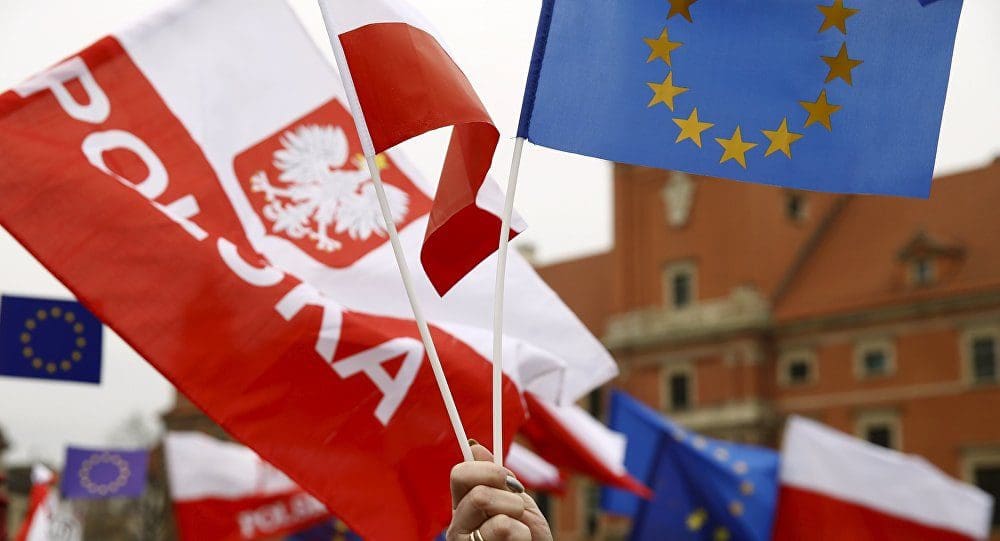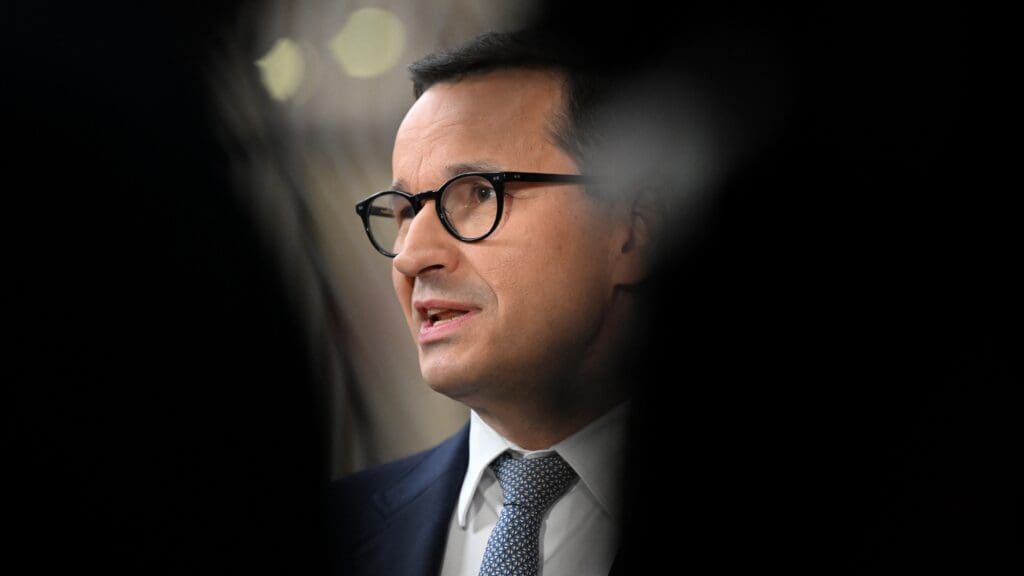Undissolved Tension between Integration and the Defence of Sovereignty in Europe
‘This is an attack on the European Union’s legal order’, say European constitutional lawyers in the wake of the Polish Constitutional Court’s ruling. Poland’s Constitutional Court has ruled that parts of EU law are unconstitutional, which could lead to a major break in the process of European integration. In response, the European Parliament has initiated procedures and the Court of Justice of the European Union has imposed heavy sanctions on Poland. Some analysts are already predicting Poland’s exit from the EU and the break-up of the European Union following the polish decision.
The decision by the Polish Constitutional Court, made public on 7 October, has provoked a strong reaction across Europe, as it represents a sturdy step towards drastically limiting the authority of EU law. Some critics say the ruling undermines the foundations of European integration, while others, such as political analyst Piotr Buras[1], argue that the decision may, in fact, mainly serve domestic political purposes.
Reacting to the Polish developments, Ursula von der Leyen expressed her concern and indicated that the European Commission would take action to ‘protect European citizens’. Von der Leyen tweeted that she was convinced that the Polish decision posed a ‘direct challenge’ to the EU’s legal order. Earlier, the European Commission had already issued a short statement saying that the EU legal order is based on the primacy of EU law over the legal rules of Member States, including the polish constitutional clauses. And this is particularly true in relation to the rulings of the Court of Justice of the European Union, which must be taken into account by the Member States and their institutions and judicial bodies. The European Commission has indicated that it will conduct an investigation into the matter, the outcome of which will lead to action being taken on the Polish decision.
‘Poland cannot function as a sovereign state’
Following the Polish decision, several European press outlets interpreted the ruling as a declaration by Poland’s Constitutional Court that parts of European Union law, as it stands, are ‘unconstitutional’
It also declared that Polish constitutional law takes precedence over EU law. But the situation is actually more complex than that. The background to the ruling remains the highly controversial Polish judicial reform, which has been the subject of criticism for years, and which the Polish government has already been criticised for doing nothing more than creating opportunities for political interference in the Polish judicial system. There have been several ‘clashes’ between Poland and the European Union over the issue, most recently a ruling on the reform by the Court of Justice of the European Union on 15 July. Belgium, Denmark, the Netherlands, Finland and Sweden supported the European Commission in the case. The Court found that the problem was not (only) the direct or indirect involvement of a body linked to the Polish legislature or government in the appointment of judges, but that the reform, together with other elements, created a breach of confidence in the independence and impartiality of the judiciary, which is a crucial criterion under the EU Treaties and the case-law of the Court of Justice of the European Union. Moreover, these provisions of EU law, whether they are principles enshrined in the Treaties or judicial decisions interpreting EU law, take precedence over the legal provisions of Poland or any other Member State. (even more, on 27 October 2021, the Court of Justice of the European Union not only confirmed the ruling, but also sanctioned Poland with draconian severity: as long as Poland does not comply with the requirements of judicial independence, it will have to pay the EU 1 million euro a day.)
The Polish Constitutional Court’s decision was therefore in effect a kind of retaliation, in that it ruled that Poland cannot function as a democratic and sovereign state if Polish judicial bodies do not apply the provisions at constitutional level and Polish constitutional provisions do not take clear precedence over any other legal provisions, including those of the Union. In addition, the decision also contained a stinging criticism when it referred to the fact that some of the institutions of the European Union exceed the powers conferred on them by the Treaties in the course of their activities.
Integration vs National Sovereignty
Poland’s Constitutional Court has, therefore, adopted a general position on the interpretation of EU court law in the context of judicial reform, which is likely to be subject to more detailed interpretation in the light of the political winds.
However, according to many constitutional lawyers, such as law professor Alexander Thiele, some of the general wording of the Constitutional Court’s ruling and its emphasis on the primacy of the Polish Constitution have put Poland and the EU at a crossroads: either Poland no longer has a place in the Union, or the European Union could lose its supranational character and become a mere loose association of states, as was the case with the German Confederation in the first half of the 19th century. According to Thiele, the Polish decision essentially makes it impossible for Polish courts to review government measures to see whether they are in line with even the most basic EU principles. ‘This would mean the end of the European community of law,’ – Thiele concluded.[2]
Nevertheless, the European Parliament moved swiftly to undermine the legal authority of the Polish Constitutional Court’s ruling with a decision on 21 October 2021. The EP decision, drafted in a style similar to political statutes, contains some interesting findings. For example, the first sections of the resolution consistently labelled the Polish body as an ‘illegitimate constitutional court’, while another comment in the resolution said that ‘national constitutional courts and some politicians are increasingly challenging’. According to the EP resolution, member states must respect the rulings of the Court of Justice of the European Union, which are key to integration. The Parliament’s decision also referred to Polish law, according to Article 91 of the Polish Constitution, ratified international agreements—including the EU treaties signed by Poland and, in essence, EU law—are part of the Polish national legal order and must be directly applied. The Polish Constitution also states that, in the event of conflict, these international agreements take precedence over national law.
With this statement, the European Parliament has sought to overrule the objections of the European Conservatives and Reformists Group, which includes a number of Polish government politicians. In a preliminary submission, the group defending the Polish government’s line, argued that the Polish Constitutional Court had in fact already ruled in 2005 that the Polish Constitution takes precedence throughout Poland in relation to all international treaties, including those concerning the transfer of powers. Moreover, in 2010, the Court also ruled explicitly in relation to European integration that the transfer of powers to the Union could not infringe the primacy of the Constitution or any of its provisions.
As the opposing arguments of the European Parliament and the European Conservative Group in the European Parliament make clear, the controversy surrounding Poland has in fact highlighted issues that are extremely difficult to assess, not only from a political point of view but also from a legal one.
‘The States have limited their sovereign rights, albeit within limited fields…’
In the aftermath of the Second World War, many of Europe’s leading politicians saw the solution to the serious crisis caused by the war in economic cooperation on European level
In the aftermath of the Second World War, many of Europe’s leading politicians saw the solution to the serious crisis caused by the war in economic cooperation on European level. Accordingly, in 1957, after lengthy negotiations, Belgium, West-Germany, the Netherlands, Luxembourg, France and Italy signed the Treaty of Rome establishing the European Community. In the Treaty of Rome, the Member States decided to create an ever-closer union, in essence to begin a process of integration. In the years that followed, the Court of Justice of the European Union (the European Court of Justice) sought to clarify this agreement between the Member States in its judgments. The Court made important rulings in several “landmark” cases. Two of these cases stand out: in the precedent-setting Van Gend & Loos case, a Dutch company with a long history wanted to sell various goods from Germany to the Netherlands, but the Netherlands imposed a duty. The company objected to the duty and invoked the free movement of goods guaranteed by the European Community in the Treaty of Rome. The European Court of Justice ruled in 1963 that the provision in Article 12 of the Treaty of Rome that Member States may not apply customs duties between themselves on imports and exports has a “direct effect” and may be relied on by nationals of Member States. The ECJ has. therefore, opened the way for European Community law in general to have direct effect in the Member States.
The Court further stated in the judgment that ‘the conclusion to be drawn from this is that the community constitutes a new legal order of international law for the benefit of which the states have limited their sovereign rights, albeit within limited fields, and the subjects of which comprise not only member states but also their nationals.’ According to the Court of Justice, “direct effect”, therefore, means that European Community law also gives rise to individual rights for nationals of the Member States, which the courts of the Member States must also take into account.
The European Court of Justice—less than a year later, in 1964—made another important finding in Costa v E.N.E.L. In this case Italy decided to nationalise the supply of electricity. However, nationalisation harmed the economic interests of certain private companies. In the case, the Court of Justice confirmed that the European Community is an autonomous body of law and that Community law is therefore an ‘independent source of law’ and has ‘direct effect’ and is therefore binding on the Member States: this means that it takes precedence over any other national law. The ruling means that Member States are permanently limited in their sovereign rights, albeit ‘within limited fields.’ (!)
Moreover, national identity—and thus constitutional structures—are in fact protected by the founding treaties of the Union. Indeed, following the failures of constitutionalism at European level in the 2000s, the Lisbon Treaty was a kind of status quo, because it was able to reinforce the supranational character of the Union by anchoring the process of integration, while ensuring that Member States could remain “masters of the treaties”, while preserving their sovereignty. In the words of the German Constitutional Court at federal level, ‘a narrow, enduring alliance of states which remain sovereign, which exercises public power on a treaty basis and whose basic order is exclusively at the disposal of the member states; the peoples of the member states remain the subjects of democratic legitimation.’[3]
The political and legal debates surrounding the Polish reform are therefore, in fact, a reflection of the tensions in this very conflict zone, of which the dispute over the independence of the judiciary is in fact only the legal dimension.
[1] https://www.deutschlandfunk.de/polnisches-urteil-zu-eu-recht-diese-position-hat-keine.694.de.html?dram:article_id=504064
[2] https://verfassungsblog.de/wer-karlsruhe-mit-warschau-gleichsetzt-irrt-sich-gewaltig/
[3] Federal Constitutional Court of Germany (BVerfGE), 123, 267








